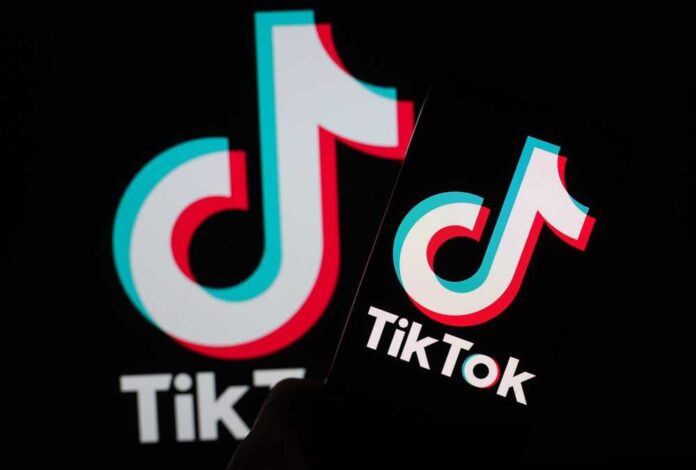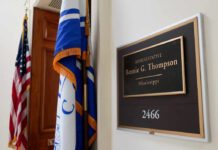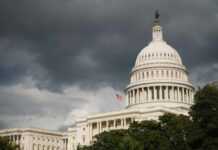
In a post on TikTok, a top executive at the Chinese-controlled social media app attacked the House Energy and Commerce hearing in which the company’s CEO was grilled by lawmakers from both parties — with the executive even going so far as to accuse committee members of “xenophobia.”
The tense hearing between TikTok CEO Shou Zi Chew and the bipartisan committee mainly focused on the social media app’s targeting of children and TikTok’s continued violation of Americans’ data privacy.
"TikTok spied on American journalists. Can you say with 100% certainty that neither ByteDance, nor TikTok employees, can target other Americans with similar surveillance?"
TikTok CEO: "I disagree with the characterization that it was 'spying.'" pic.twitter.com/EjWPzuvcec
— RNC Research (@RNCResearch) March 23, 2023
In a tweet filled with left-wing buzzwords, TikTok COO Vanessa Pappas — who has “she/her, they/them” in her profile bio — claimed the hearing “felt rooted in xenophobia.”
“We’re committed to providing a safe, secure platform, that fosters an inclusive place for our amazing, diverse communities to call home,” Pappas wrote. “It’s a shame today’s conversation felt rooted in xenophobia. Thank you to our employees who work tirelessly to protect our platform & community.”
We're committed to providing a safe, secure platform, that fosters an inclusive place for our amazing, diverse communities to call home. It’s a shame today’s conversation felt rooted in xenophobia. Thank you to our employees who work tirelessly to protect our platform & community https://t.co/ya3nMtTnrG
— V(anessa) Pappas (@v_ness) March 23, 2023
The Chinese social media company also released a statement attacking the hearing, claiming that lawmakers ignored the steps the company has taken to address the problems and were instead engaging in political grandstanding.
“Our CEO, @ShouChew, came prepared to answer questions from Congress, but unfortunately, the day was dominated by political grandstanding that failed to acknowledge real solutions already underway through Project Texas or address industry-wide issues of youth safety,” TikTok Comms wrote in a tweet.
1/ Our CEO, @ShouChew, came prepared to answer questions from Congress, but unfortunately, the day was dominated by political grandstanding that failed to acknowledge real solutions already underway through Project Texas or address industry-wide issues of youth safety.
— TikTokComms (@TikTokComms) March 23, 2023
“Also not mentioned today by members of the @HouseCommerce Committee: the livelihoods of the 5 million businesses on TikTok or the First Amendment implications of banning a platform loved by 150 million Americans,” the company added.
2/ Also not mentioned today by members of the @HouseCommerce Committee: the livelihoods of the 5 million businesses on TikTok or the First Amendment implications of banning a platform loved by 150 million Americans.
— TikTokComms (@TikTokComms) March 23, 2023
Pappas’ comments likely refer to an exchange between Chew and Rep. Debbie Lesko (R-AZ), who repeatedly asked the TikTok CEO to denounce the Chinese Communist Party’s persecution of Uyghur Muslims — who are currently being held in concentration camps within China. Chew refused to answer the question, instead trying to pivot back to conversations about the content on TikTok.
“Do you agree that the Chinese government has persecuted the Uyghur population?” Lesko asked.
“If you use our app, and you open it, you will see our users who give all sorts of content,” the TikTok CEO replied.
“Well, it’s deeply concerning to hear about all accounts of human rights abuse; my role here is to explain what our platform does—” Chew continued before being cut off again.
“I think you’re being pretty evasive,” Lesko interjected. “It’s a pretty easy question.”
The Republican congresswoman then repeated her question for a third time.
“Congresswoman, I’m here to describe TikTok and what we do as a platform,” Chew responded. “And as a platform, we allow our users to freely express themselves on this issue and any other issue that matters to them.”
TikTok CEO Shou Chew refuses FOUR TIMES to admit the Chinese Communist Party is persecuting the Uyghur population pic.twitter.com/tOUzELN13R
— RNC Research (@RNCResearch) March 23, 2023
Critics responding to Pappas’ post pointed out that the TikTok CEO’s refusal to answer the question was actually evidence that the social media app is compromised by the Chinese Communist Party.
“One of TikTok’s core claims is that it is independent of its Chinese parent, ByteDance,” cybersecurity expert James Gillespie tweeted in response to Pappas. “So it seems reasonable for Congress to ask the CEO if he condemns the Uyghur genocide because if he won’t that surely says something about how free he feels to displease Beijing.”
One of TikTok's core claims is that it is independent of its Chinese parent, ByteDance. So it seems reasonable for Congress to ask the CEO if he condemns the Uyghur genocide, because if he won't that surely says something about how free he feels to displease Beijing. https://t.co/IU0ld4cMYT
— James Gillespie (@gillespiejames_) March 23, 2023
“You can see here how well the Chinese communist state apparatus has mastered the idiocies of the West & its media classes – pronouns, safetyism, ‘diverse communities,’ claiming ‘xenophobia’ … a masterclass in understanding & exploiting the West’s neuroses,” journalist Gray Connolly added.
You can see here how well the Chinese communist state apparatus has mastered the idiocies of the West & its media classes – pronouns, safetyism, "diverse communities", claiming 'xenophobia' … a masterclass in understanding & exploiting the West's neuroses https://t.co/h0dyOpmGTd
— Gray Connolly (@GrayConnolly) March 23, 2023
“COO of TikTok says that today’s hearing — where CEO of TikTok on several occasions refused to condemn concentration camps filled with a religious minority — ‘felt rooted in xenophobia,’” journalist Zaid Jilani wrote.
COO of TikTok says that todays hearing — where CEO of TikTok on several occasions refused to condemn concentration camps filled with a religious minority — “felt rooted in xenophobia.” https://t.co/10LARThbUy
— Zaid Jilani (@ZaidJilani) March 23, 2023
“Calling real concerns about data security and content filtering xenophobic is certainly an interesting approach to take,” said CNBC writer Alex Kantrowitz.
Calling real concerns about data security and content filtering xenophobic is certainly an interesting approach to take https://t.co/JihdiSciYX
— Alex Kantrowitz (@Kantrowitz) March 23, 2023




























